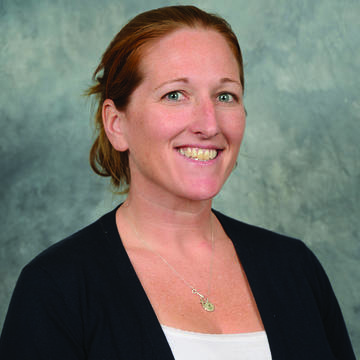Master of Public Health in
Biostatistics and Epidemiology
- Master of Public Health (MPH)
- Online
- Hybrid
If the last few years have shown us anything, it’s that there’s a pressing need for well-trained public health professionals. The world needs people who can not only tackle existing problems in public health, but identify and prevent future issues before they spin out of control — including the next potential pandemic.
That’s why we created the Master of Public Health (MPH) in Biostatistics and Epidemiology at our King Graduate School. Rooted in core principles of public health, the program aims to equip students with the skills they need to address public health issues on the local, state, and global levels. In addition to comprehensive training, MPH candidates will gain practical experience applying biostatistical and epidemiologic methods to real-world public health challenges facing diverse populations.
With an MPH in Biostatistics and Epidemiology, you can join the front lines of public health. The work you do can help shape public health policy around infectious diseases, environmental health, healthcare disparities, and more.
Find Out About Our Online MPH Biostatistics and Epidemiology
Why a Major in Public Health?
The U.S. Bureau of Labor Statistics (BLS) predicts that over the next several years, jobs in the healthcare sector will increase almost three times faster than the average rate for all occupations. The public health response to COVID-19 created a surge in demand for epidemiologists and biostatisticians. BLS predicts a growth rate of 26% for epidemiologists by the end of the decade — more than five times the national average for all jobs — and a 30% expansion for biostatisticians.
It’s not just the employment outlook that makes a Master of Public Health worthwhile. It’s the chance to make a true, meaningful impact on people’s lives. With an MPH in Biostatistics and Epidemiology, you’ll have the skills to identify the underlying causes of disease and disability; effectively communicate your findings; and create evidence-based interventions based on solid public health research.
Curriculum
The MPH in Biostatistics and Epidemiology will teach you how to design your own public health studies; analyze complex health data to draw meaningful conclusions; and use statistical analysis techniques to ensure its accuracy. You’ll then use that knowledge to identify patterns in the spread of disease — and identify risk factors that lead to chronic illness.
You’ll also learn how to evaluate the effectiveness of public health interventions, and communicate those findings to both your colleagues and the general public. Under the guidance of the King Graduate School’s expert faculty, you’ll master:
- Principles of biostatistics
- Principles of epidemiology
- Environmental and occupational health
- Behavioral and social aspects of public health
- Health policy and management
- Public health surveillance methods
- Epidemiological research methods
You’ll bring it all together with a culminating experience in public health: a three (3)-credit capstone course that allows you to collaborate on a shared thesis project in your final semester.
You’ll also have the option to take either:
- A three (3)-credit internship, or
- One of two (2) electives in statistical computing and data science.
Because real-world learning is one of the cornerstones of our education, we strongly encourage MPH students to enroll in an internship, which allows students to apply their newfound knowledge in professional settings.
How Long Does It Take to Get an MPH in Biostatistics and Epidemiology?
The MPH in Biostatistics and Epidemiology is a four (4)-semester program. That means full-time students can earn their degree in less than a year and half on Monroe’s three-semester academic calendar.
Master of Public Health Requirements:
45 total credits, including a Culminating Experience in Public Health
- 42 required core credits
- Three (3) internship or elective credits
You can also earn your MPH degree online or in a hybrid online/on-campus format.
Learn more about the requirements for an MPH in Biostatistics and Epidemiology.
Public Health Surveillance Methods
The World Health Organization (WHO) defines public health surveillance as “the continuous, systematic collection, analysis and interpretation of health-related data needed for the planning, implementation, and evaluation of public health practice." In this course, MPH candidates will learn how to design and employ public health surveillance systems for diseases and public health emergencies in a variety of settings. Students will also explore the legal and ethical implications of surveillance, as well as the role it plays in developing public health policy.
Admission Requirements
Candidates for our Master of Public Health Degree must fulfill the following requirements:
- Candidates must possess a bachelor’s degree from an accredited four-year institution of higher education.
- Candidates must submit:
- A completed application for admission.
- A 500-word essay describing your career goals and why you want to pursue a master’s degree.
- A current résumé.
- Transcripts from all prior educational institutions attended.
- Two (2) professional letters of recommendation.
- Master of Public Health candidates must also participate in a pre-admission interview.
Tuition and Financial Aid
How Much Does a Public Health Degree Cost?
As a public health professional, you’ll be committed to serving the public good. At Monroe, we’re committed to serving you. That’s at the core of our approach to financial aid — and it’s why U.S. News & World Report has named us one of the Best Value Schools in Regional Universities North.
In addition to our affordable tuition and fees and manageable payment plans, we pair every student with a dedicated financial aid counselor who will help them secure the maximum possible aid package in the form of scholarships, grants, and loans. Students who work for one of our more than 400 partner organizations may also be eligible for a Corporate Partnership Grant covering up to 20% of tuition costs.
Your Future Public Health Career
As the public health field becomes ever more data-driven, there’s been an increased demand for professionals with strong skills in biostatistics and epidemiology. With your Master of Public Health Degree, you’ll be prepared to take on advanced public health jobs including:
- Pharmaceutical epidemiologist
- Clinical data scientist
- Infection preventionist
- Infection control professional
- Biostatistical research analyst
- Public health project manager
You’ll also be qualified to work in a wide variety of private and public healthcare settings. They include:
- Hospital systems
- Federal, state and local health departments
- Health research institutions
- Medical laboratories
- Pharmaceutical companies
- Academic medical centers
- Nonprofit organizations
- Consulting firms
COVID-19 showed us how much we depend on epidemiology and biostatistics to tackle public health issues — not only to combat pandemics, but to improve the overall health of diverse populations around the globe.
Discover What You Can Achieve
From community health initiatives to large-scale healthcare administrations, there are many career paths in public health. All of them rest on the same foundation: reliable public health data and evidence-based strategies.
With an MPH in Biostatistics and Epidemiology, you can help build that foundation — and make a huge impact in people’s lives. Discover what our King Graduate School can do for you.
Featured Faculty

Aditi Puri, PhD, MPH
Professor, School of Allied Health Professions
